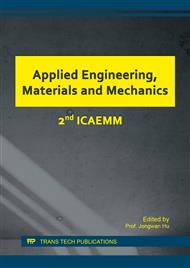p.99
p.109
p.114
p.119
p.125
p.130
p.143
p.149
p.155
Analysis of Development Trends in Low Energy Advanced Convergence Building Technology
Abstract:
The purpose of this study is to conduct a technology-level analysis and draw implications regarding the development of low energy advanced convergence building technology by utilizing information in research papers. With this aim, a citation analysis, a technology development stage analysis, a network analysis, and a technology associative map analysis were undertaken. The results showed that countries including the USA and China have carried out much research in the development of low energy advanced convergence building technology, and the technology level was found to have reached the maturity stage. Also, joint research has been conducted by region, and technology development has been done actively through ICT technology convergence such as electric and electronics and information communication. These analyzed results are expected to furnish useful information for strategy building in the development of low energy advanced convergence building technology.
Info:
Periodical:
Pages:
125-129
DOI:
Citation:
Online since:
October 2017
Authors:
Keywords:
Price:
Сopyright:
© 2017 Trans Tech Publications Ltd. All Rights Reserved
Share:
Citation:


